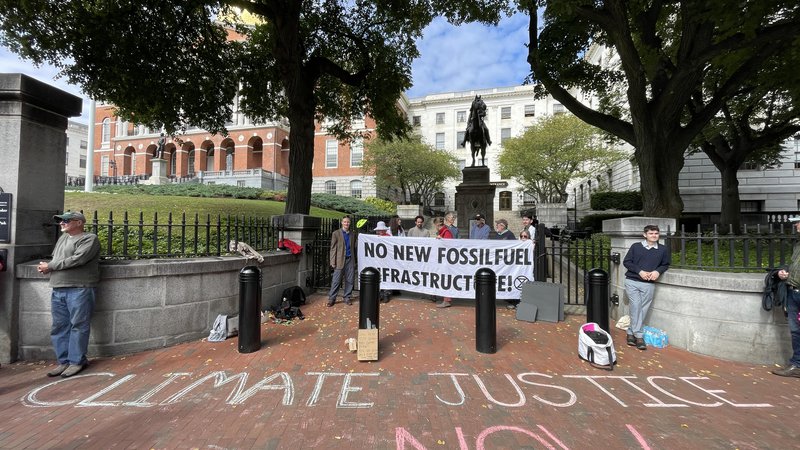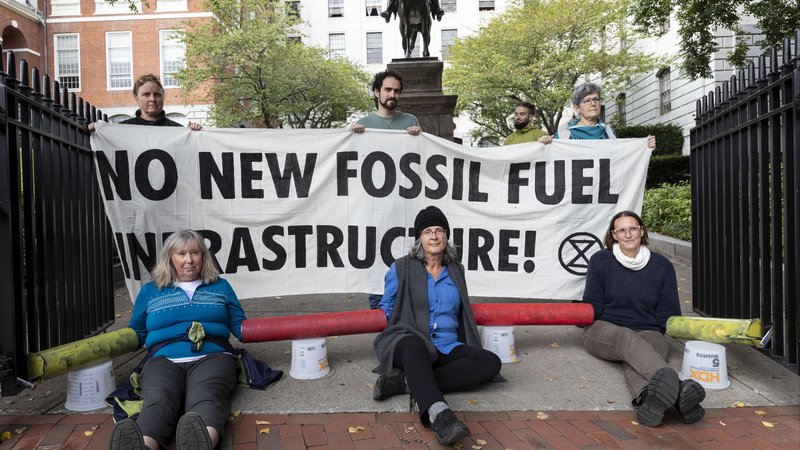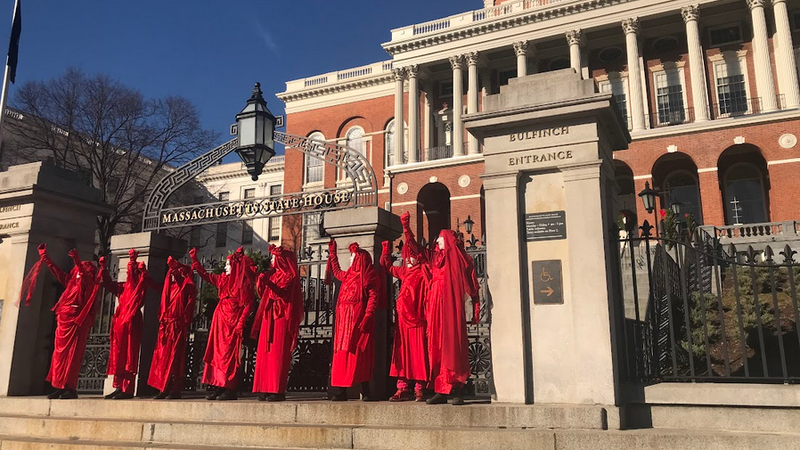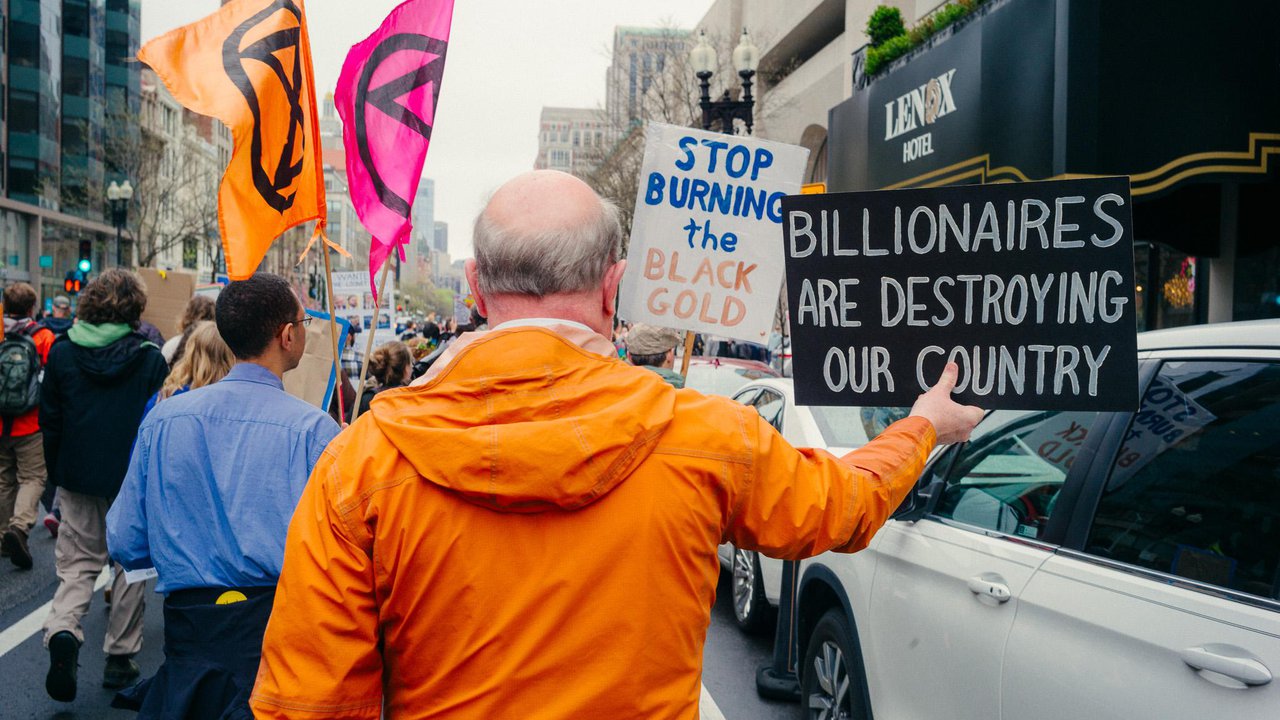
What Does Trump's "Big Beautiful Bill" mean for Climate?
You've likely heard that on Friday July 4, Trump signed the notorious "Big Beautiful Bill" into law. This piece of legislation that "No One Wants" has been called "devastating" and at best "immaterial". As said by Moira Donegan in The Guardian, "The bill, in other words, steals from the sick, the elderly, the hungry and the curious, and gives that plundered loot to billionaires and jackboots. It will warp American life – already sickly and impoverished by the standards of our peer nations – in cruel and enfeebling ways. It will make us sicker, poorer, more fearful, more ignorant and more endangered. It will make the rich, meanwhile, even richer."
To be clear, Extinction Rebellion does not directly support any piece of legislation, and certainly not any piece of legislation that doesn't include a total ban on new fossil fuel infrastructure. A system that would allow a bill signed into law that sadistically cuts medicaid, guts the Supplemental Nutrition Assistance Program, and pours funding into kidnapping and prosecuting our neighbors from across borders, is not a system that XR Boston supports. Our third demand, Beyond Politics, states "The government must create and be led by the decisions of a Citizens' Assembly on climate and ecological justice." Until the United States is functioning through Citizen's Assembly, we are still stuck in an oppressive regime.
However, today we are in a post-Democracy freefall, so we're going to talk about what the so-called "Big Beautiful Bill" means for climate. In terms of overall carbon emissions from the United States, early modeling by research groups shows that the version of bill passed in the Senate on Tuesday would raise emissions of carbon dioxide by 8 percent to 12 percent from the levels expected over the next decade if the Democrats’ climate law, the Inflation Reduction Act (H.R. 5376 (117)), had remained in place.
The Inflation Reduction Act was already insufficient - Biden only pledged to cut greenhouse gases 61 to 66 percent below 2005 levels by 2035. According to Jesse Jenkins, a Princeton University professor who runs the Rapid Energy Policy Evaluation and Analysis Toolkit that modeled the effects of the so-called Big Beautiful Bill, "when combined with Trump’s plans to repeal emissions limits for power plants, vehicles and other sources, the House and the Senate bills would spike U.S. greenhouse gases 25.7 and 25.2 percent in 2035, respectively, compared with Biden-era policies." As published in Scientific American, the so-called Big Beautiful Bill "would all but seal the fate of more ambitious attempts to keep that temperature increase below 1.5 C."
Inside Climate News summarized it well: "It stomps out incentives for purchasing electric vehicles and efficient appliances. It phases out tax credits for wind and solar energy. It opens up federal land and water for oil and gas drilling and increases its profitability, while creating new federal support for coal. It ends the historic investment in poor and minority communities that bear a disproportionate pollution burden—money that the Trump administration was already refusing to spend. It wipes out any spending on greening the federal government."
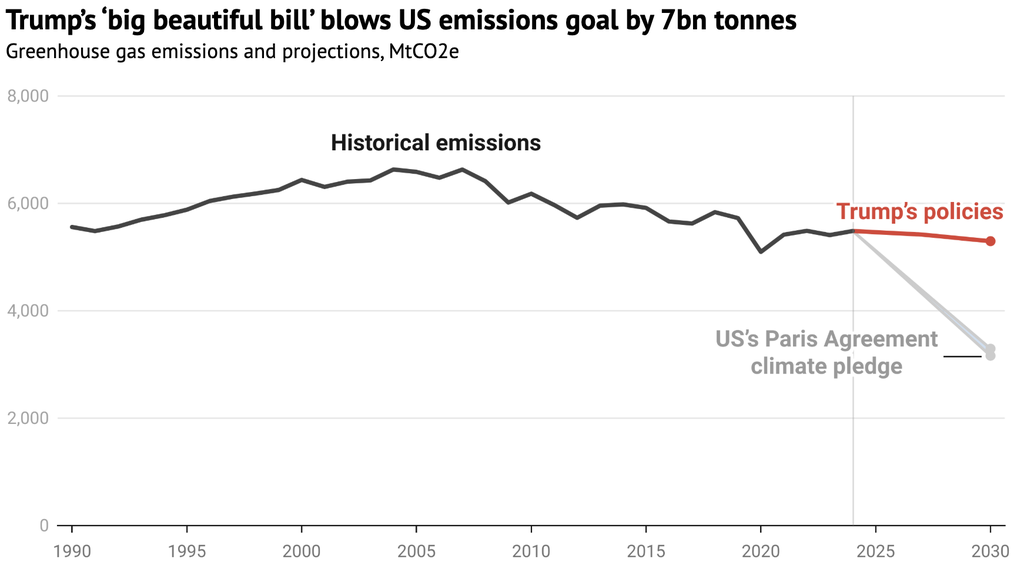
As lauded by Trump, the bill’s cuts to clean energy tax incentives are expected to save the Treasury $499 billion. It is one of the biggest offsets in the bill, but it only pays for about 12 percent of the legislation’s $4 trillion in tax cuts. Some of this money will go to the $30 billion promised to the out-of-control ICE task force. In addition, the Bill appropriates $100 million in funding for the White House Office of Management and Budget, led by director and Project 2025 co-author Russell Vought, “for the purposes of finding budget and accounting efficiencies in the executive branch.” This has been called a "slush fund" without accountability or checks and balances.
One of the cuts that will be most visible to consumers, and will happen fastest, is the elimination of the $7,500 consumer tax credit for buying a new electric vehicle and the $4,000 tax credit for buying a used electric vehicle. The credits will disappear at the end of September, and the electric vehicle market is expected to slow considerably.
Fossil Fuels Also Win Big With the BBB
The so-called Big Beautiful Bill (BBB) reinstates fossil fuel lease sales in the Arctic National Wildlife Refuge, 19.6 million acres that are home to an abundance of wildlife—musk oxen, wolves, caribou, and polar bears—and are the summer breeding grounds for millions of birds that migrate from six continents and all 50 states. Its lands and waterways are also vital to the Gwich’in and other local Indigenous communities. Public lands are being opened for development. Meanwhile, $267 million in funding to the National Park Service for staffing is rescinded.
The bill repeals Biden's Inflation Reduction Act’s increases on oil and gas royalty rates, lowering them to 12.5 percent from 16.6 percent, and brings coal royalty rates from 12.5 percent to 7 percent. These changes make drilling and mining on federal land more profitable for companies and puts more weight on taxpayers. The bill also establishes mandatory timber sales, rescinds federal funding to protect old-growth forests and boost forest resiliency, and implements minimum leasing mandates for minerals in public lands and waters.
Communities Stand To Lose
The bill also rescinds the Inflation Reduction Act’s Environmental and Climate Justice Program, which provided grants for community-based initiatives in disadvantaged communities. Trump's EPA had already terminated funding for grants awarded under the program itself, for initiatives aimed at disaster preparedness, workforce development, air quality, flood control and high energy costs. The projects involved things like installing pollution notification systems and replacing lead pipes, and were designed to strengthen communities against more damaging weather events. Environmental groups had already filed a class-action lawsuit to try to reinstate the canceled grants.
Now the bill rescinds all unobligated funding for the program for basic administrative support like technical assistance and staff budgets aimed at supporting the successful implementation of the grants, cutting the feet out from these projects entirely. As floodwaters devastate Texas, it feels like a bad time to remove climate disaster mitigation programs.
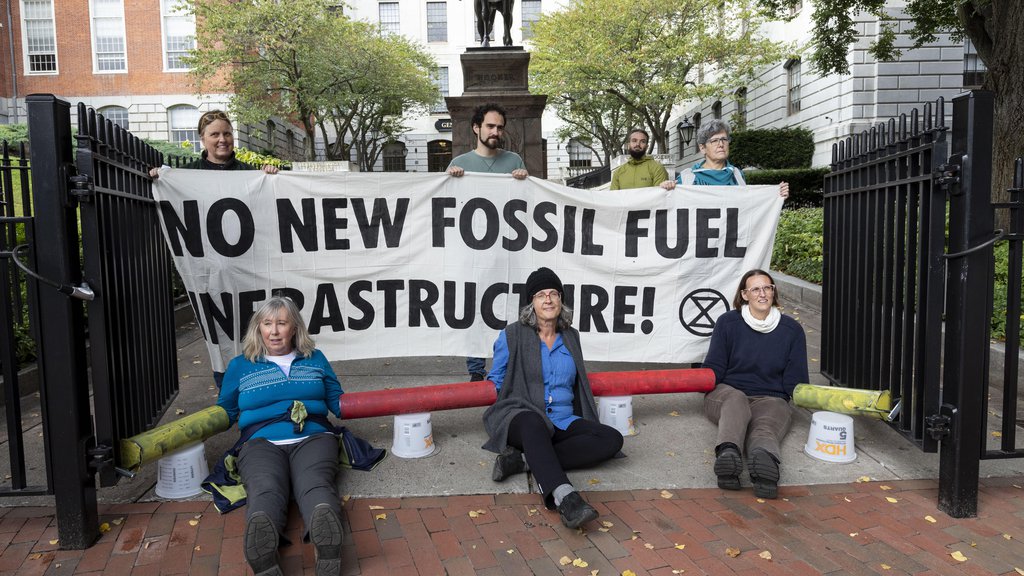
It's Time To Fight Back
If you're reading this, you're probably a good person by societal standards. You recycle. You try to limit your driving and flying. You vote. You do your research. You brake for animals in the roadway, and will even carry a turtle across. You're in good company here! And yet, somehow, atrocities like the so-called Big Beautiful Bill keep damaging the world in which we live. It's simply not enough to vote and recycle. It's not enough to sign petitions. It's not enough to play by the rules.
If it was enough, we wouldn't be in this mess.
If you have the constitution for helping activists put themselves in the way of arrest to demand change, or are interested in risking arrest yourself, it's time to get into a De-Escalation & Peacekeeping training. If you aren't sure that you're ready for that step, but would like to try protesting, join us at the Die-In For Climate Action on Friday, July 25. If you aren't able to help on the ground, you can donate to XR Boston to support protests. Every one of us is necessary in this fight, and this fight is happening now.
Article by Jamie McGonagill, Extinction Rebellion Boston
Related Stories:
Featured:
-
The third annual Week of Rebellion is full of opportunities for celebration and action!
-
Our government had the opportunity to finally turn our state into a "climate leader," and they decided yet again to prioritize profits and political posturing over the well-being of residents.
-
Prominent climate scientists and activists demand immediate climate action in the United States.
-
Stop the Fossil Fuel Industry, Now: List of events for Extinction Rebellion Boston's September week of rebellion
-
A compilation of books, movies, articles, and ways to take action to protect Black lives
-
Nadia Colburn, PhD and member of Extinction Rebellion Media team, discusses how to talk about the climate and ecological crisis with family and friends.
Upcoming Events:
-
Sat Feb 28th @ 2:30 p.m.
-
Sun Mar 1st @ noon
-
Mon Mar 2nd @ 6:30 p.m.
